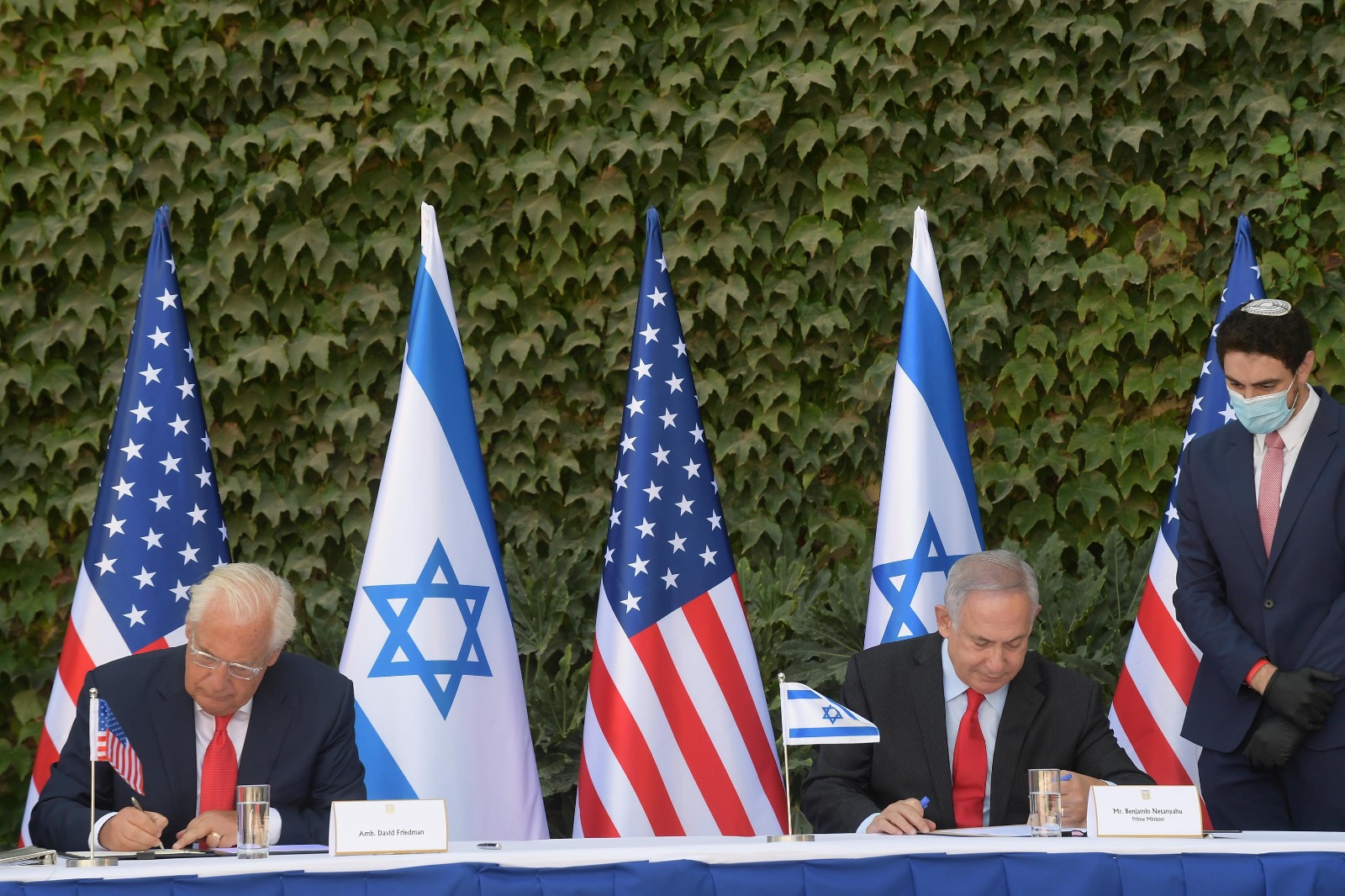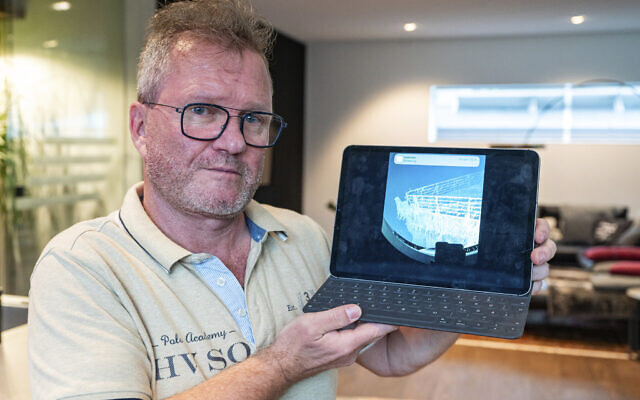US set to cease scientific, tech cooperation with Israeli entities over Green Line
Move said to be resumption of policy that was reversed under Trump administration; Foreign Minister Eli Cohen tells reporters that the decision ‘is wrong’

The United States has told Israel that it will cease scientific and technological cooperation with entities in the West Bank, the Golan Heights and East Jerusalem, returning to a long-running policy that had been reversed under then-US president Donald Trump, it was reported on Sunday.
The Kan public broadcaster said the move was a return to the directive that there would be no scientific and technological cooperation in the areas defined by an unnamed US State Department official to the network as beyond the 1967 Green Line and “which remain subject to negotiations on their permanent status.”
In a briefing with reporters on Sunday, Foreign Minister Eli Cohen protested the move. “I object to the decision and think it is wrong. In similar cases in the past, the Israeli government fully reimbursed parties damaged by such decisions,” Cohen said.
The policy was briefly reversed under former US president Donald Trump, when Prime Minister Benjamin Netanyahu and then-US ambassador David Friedman signed an agreement that removed all previous geographic restrictions from the two countries’ scientific cooperation.
The two signed a protocol that amended three 1970s agreements that form the basis for bilateral scientific cooperation.
Those agreements had stipulated that cooperative projects “may not be conducted in geographical areas which came under the administration of the State of Israel after June 5, 1967, and may not relate to subjects primarily pertinent to such areas.”

An unnamed US State Department official told Kan that the updated directive “simply reflects the position of the United States over the years,” according to a Hebrew translation provided by the outlet.
“We are working toward negotiations for a two-state solution, where Israel lives in peace and security alongside a viable Palestinian state,” the US official said.
The official noted that the US is greatly appreciative of scientific cooperation “with the startup nation,” and emphasized that this would continue.
The Walla news site said Israel had been informed of the decision by the US around two weeks ago and that the decision was most likely to mainly impact research at Ariel University in the West Bank.
The report said that while the decision to reverse the Trump administration’s policy had been made around two years ago, it had only become relevant when a grant application was recently submitted for a scientific project at Ariel University.
At the same time as it informed Israel, the US State Department also notified a number of US ministries of the return to the pre-October 2020 policy, the report said.
There was no immediate comment from Netanyahu’s government on the matter.
The Green Line demarcated between Israel and its neighbors under the 1949 Armistice Agreements that ended Israel’s War of Independence. In the 1967 Six Day War, Israel captured the Golan Heights, East Jerusalem, the West Bank, and the Gaza Strip. Israel later annexed the Golan Heights and East Jerusalem in moves not recognized by the international community, and later unilaterally withdrew from the Gaza Strip.
The Trump administration recognized the annexation of the Golan Heights and also moved the US embassy from Tel Aviv to Jerusalem in a move that, though short of formal recognition, was seen as backing Israel’s claim that the city is its undivided capital.
Israel has in the past signed cooperation agreements that exclude entities beyond the Green Line. The European Union has taken a similar position over the years on not funding projects that are conducted outside the borders of Israel proper.









